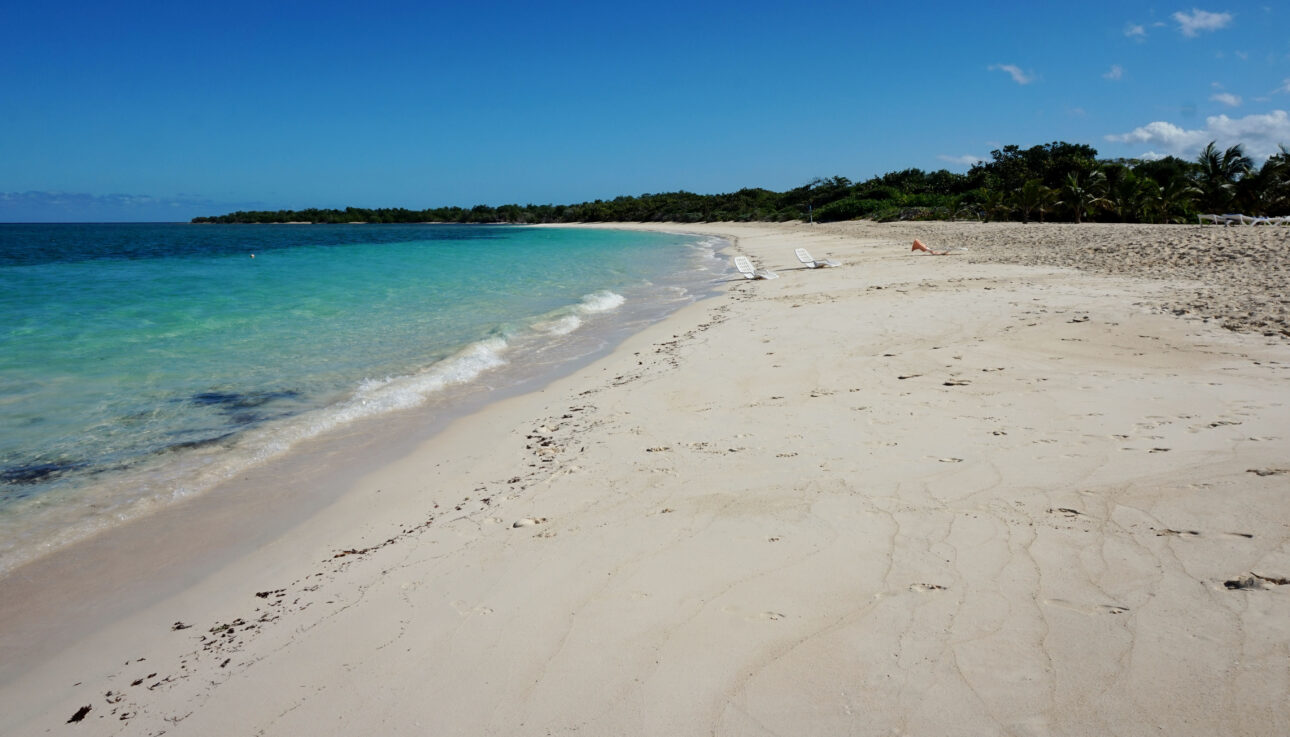Cuba is the largest island in the Caribbean, with a land surface of 110,922 square kilometers and 1,250 km long. More and more luxury hotels are being built to house the multitudes of tourists arriving from as close as Canada to as far away as Japan. In this article, I have included useful and valuable information which will help you prepare for your upcoming trip to Cuba.
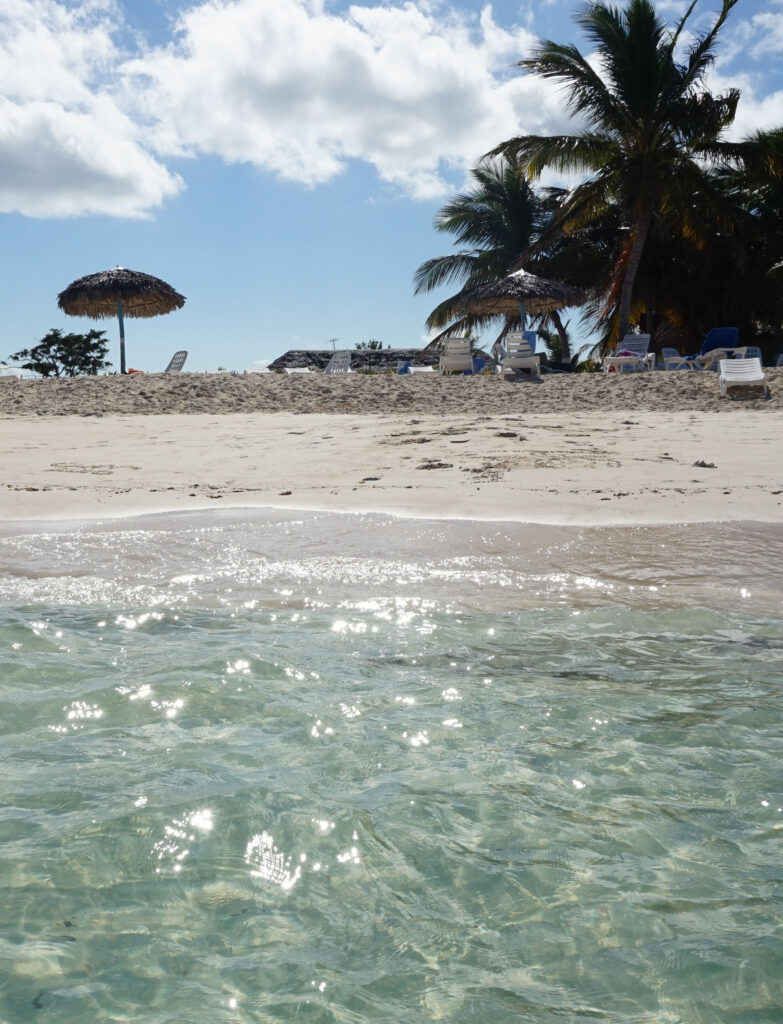
A Little Bit of Geography
Cuba’s surface is 12 times bigger than Puerto Rico. The Republic of Cuba consists of the main island of Cuba, the islet of “De la Juventud”, Cayo Largo and some 4000 other keys and islets all around.
Sea borders: on the east side, La Espanola is 77 km away. On the north side, the peninsula of Florida at 180 km. On the west side, Cancun is 210 km away, and from the south coast, Jamaica is 140 km away.
Mountain groups: the Cordillera de Guaniguanico range in the western region, the Escambray mountain range in the center of the island, and the Sierra Maestra mountain range on the east side. Cuba’s highest mountain is Pico Turquino, which is 1974 meters above sea level.
Useful Information
Booking Excursions to Explore the Country
If you are on a package vacation with a tour operator, most of them will have a Destination Representative (a person who is assigned a certain # of resorts and goes to them in order to ensure everyone has a wonderful vacation). Upon arrival at your resort, you will be informed of a time to meet your representative, which will most likely be the second day. While not mandatory, it is strongly recommended to attend. If at any time you are unhappy with any services from the hotel, and if you need information on what excursions to do, always ask the Destination Representative. Their job is to be there for travelers who need assistance.
Teo’s travel tip: when in Cuba, do not travel on your own to facilities outside your hotel, such as bars and nightclubs. You will see people coming on the beach saying that they will offer you a “discount” or “good price” on a tour. Ignore them. This is how people get scammed in Cuba. Always book a tour through your Destination Representative, or at the tour desk in your hotel. That way you can travel with confidence knowing you will not get scammed, and you will travel with a reputable company that will show you what this beautiful island has to offer. Please take sensible precautions and be vigilant all the time.
Weather
Cuba has a tropical climate, influenced by the refreshing breezes of trade winds. It has 2 seasons: the rainy season which runs from May to October, and the dry season which runs from November to April. But don’t be discouraged from going between May and October, because on average, Cuba has 330 sunny days a year. The average water temperature is 25°C in the winter and 28°C in the summer.
Currency
In Cuba, visitors must use the “Convertible Peso” (CUC), which is the official currency. This can only be exchanged in banks, hotel exchange offices and airports. You should re-exchange CUC into your national currency before leaving Cuba. It is therefore recommended to change small amounts each time. Most resorts have a foreign exchange office so you don’t need to venture to the city. Click here to check the current exchange rate.
Bank cards are not accepted in Cuba, nor are credit cards issued by the US banks such as American Express, Citibank, Capital one, Mastro or Diners Club. It is therefore recommended to bring cash. International credit cards like Visa and MasterCard are accepted.
Most banks are in shopping areas, and are open weekdays between 09:00-15:00. However, most hotels have a money exchange counter.
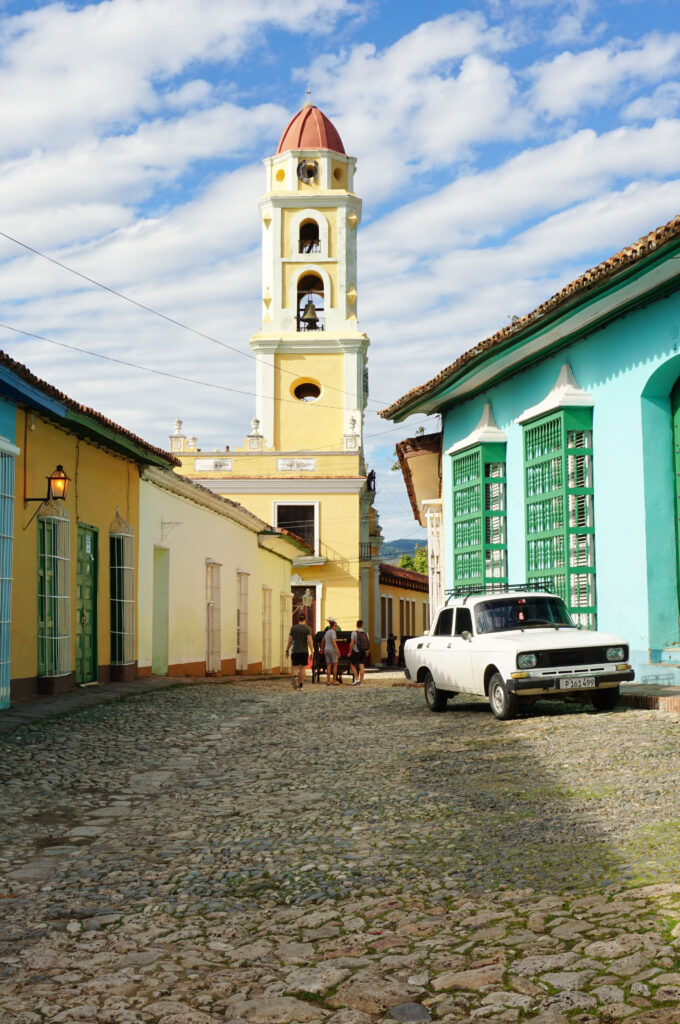
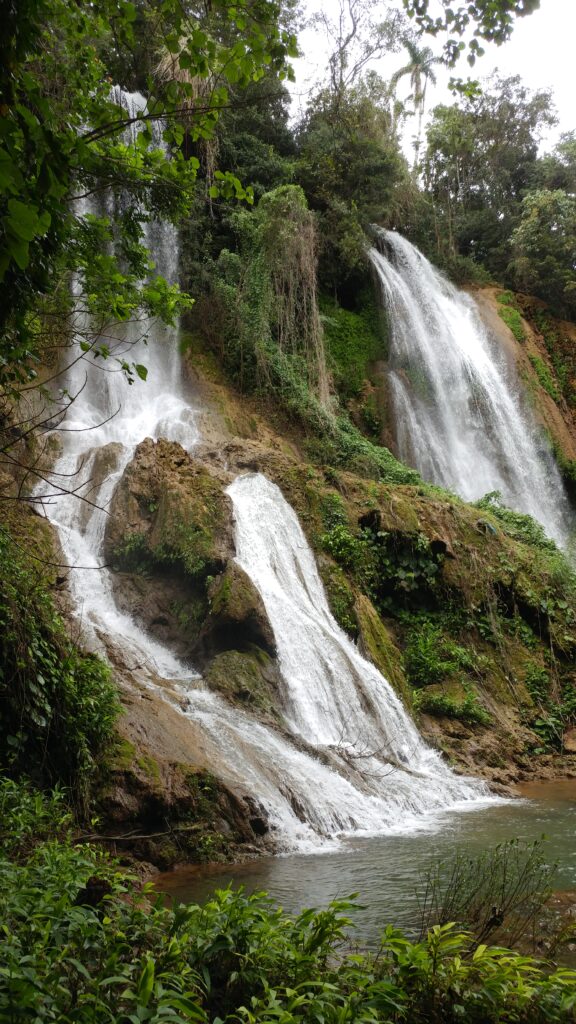
Water
Although tap water is treated, it is recommended to drink bottled water, especially when outside the resort. It can be purchased from most hotels, shops and in all grocery stores. The ice and drinking water in the hotels is made from purified water so it is safe.
Electricity
Cuba runs on 2 electrical currents: 110V and 220V. Usually, a Canadian/US plug works, however, it tends to be different from one hotel to another. Please check which voltage your room is equipped with before using any electrical appliances. Most hotels do not provide voltage converters.
Medical Assistance
In case you need to consult a doctor, please contact the front desk at your hotel. Doctors are available 24 hours a day, and most of them do speak English. Do not rely on your provincial health plan to cover expenses if you are sick or injured while abroad. The best idea would be to invest in travel insurance, as it is never a good idea to leave without insurance in your luggage. Keep all your receipts, as you will need them for any insurance claims upon your return home. Pharmacies can also be found in the cities and most towns.
Teo’s travel tip: do not forget to bring insect repellent, and most importantly, After-Bite. I will never forget the one trip in 2016 when I went to watch the sunrise on the beach at 5:30 am. By 7:15, when the sun was up, I had already been a good breakfast for thousands of mosquitoes without knowing. I cannot describe how painful the next 3 days were, and on one of my excursions, I had to spend my free time finding a pharmacy that sells After-Bite rather than exploring!
Shopping
Generally, shops are open Monday to Saturday from 09:00 to 18:00, and Sundays from 09:00-13:00. Please remember that bank cards and credit cards issued by American banks are not accepted in Cuba. You will also find shops in your hotel and in town, where the prices are generally fixed and bargaining is not possible.
Some beach vendors might approach you with “a deal”. Never buy cigars on the beach or on the streets. Although they might look real, they are almost certainly fakes. If someone offers you a $250.00 CUC box of cigars for $20 – beware! If something sounds too good to be true, it probably is.
Tipping
If in your all-inclusive resort, you feel that you have received services above and beyond, gratuities are most appreciated. Tipping is based on 10-15%, and is very much appreciated, however, left to the clients’ discretion.
Beaches
The beaches in Cuba are public, and locals do come to enjoy the beach. Do not leave personal belongings unattended, nor towels from the hotel. It is recommended to leave all your valuables in a safety deposit box.
Always be cautious when swimming in unfamiliar waters (such as beaches in cities like Havana). Don’t swim too far out. Beware of undertows. Never leave children unattended. Before you swim, please look for the coloured flag that indicates water conditions:
- Green – safe to swim
- Orange or yellow – proceed with caution
- Red – dangerous. No swimming.
When outside, remember to wear appropriate sunscreen and a hat. Drink plenty of water and avoid too much exposure between noon and 15:00, which are the hottest hours of the day.
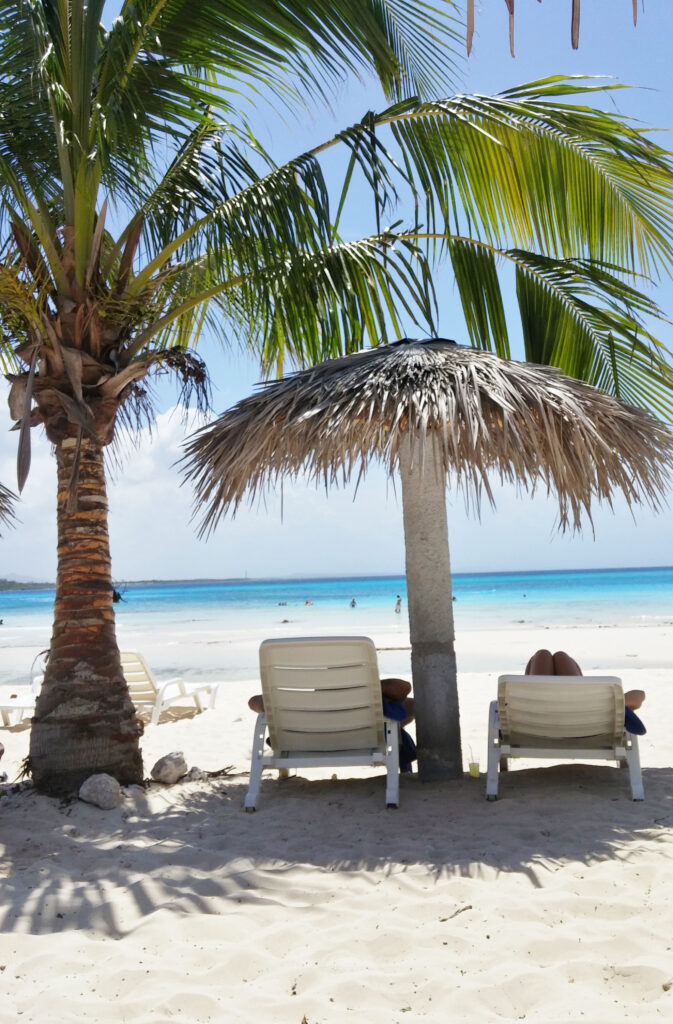
Teo’s Travel Tip: If you’re a camera buff like me, who thinks “take nothing but pictures, leave nothing but memories”, it is recommended to have one or two times throughout the trip dedicated to taking pictures. Enjoy the rest of your time relaxing on the beach and breathing in the warm air while leaving your valuables in the hotel room. Especially if you’re traveling in the winter and you’re about to return to -20 degrees!
Communication and Internet
Since 2020, most resorts offer free Wi-Fi, especially the 4-star and 5-star ones. The older 4-star resorts and all resorts lower than 4-star usually charge 9 CUC per hour, and one must buy an internet card which has a time limit of one-hour.
Do not try to use the public computers in the hotel. The internet on those computers is extremely slow, and will bring you a lot of nerves!
Long distance calls can be made from your hotel with credit or cash deposit at the reception. To avoid costly phone calls, it is best to purchase prepaid phone cards that can be used on the local pay phones. Otherwise, international calls cost approximately 1.95-3.50 CUC per minute. You will be charged as soon as the connection is made even if no one answers.
Conclusion
I hope you will enjoy your vacation to Cuba, and will venture off the resort to see what this beautiful island offers. Much more than just an island of beaches and coconut trees, Cuba is a country of stunning landscapes and tourist attractions waiting to be discovered. Need help with what places to visit? Check out my other articles on Cuba.

